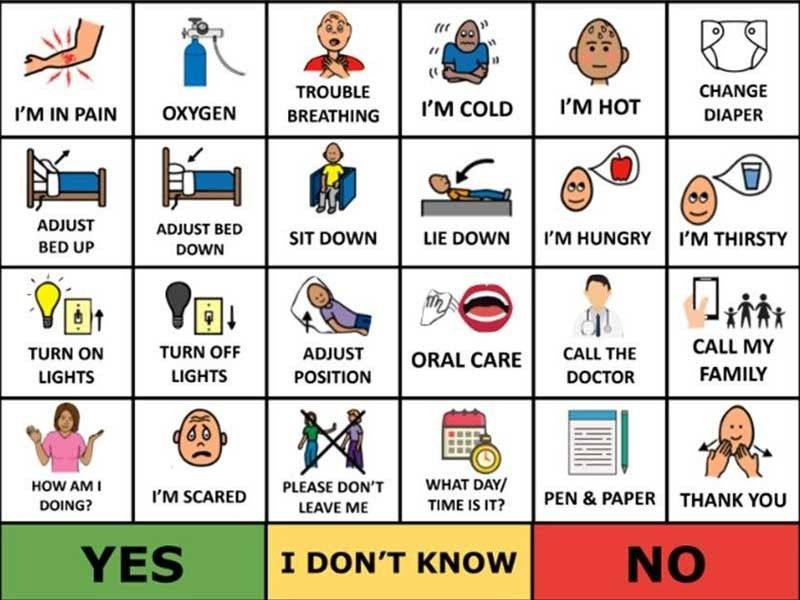Speech pathologists design communication boards for COVID-19 patients

MANILA, Philippines — With movement already restricted, a hospital patient cannot speak either when intubated.
For patients confined to their beds with protruding tubes, the struggle and anxiety that comes with the inability to communicate can impair both the effectiveness of treatment and the person's ability to cope with the stress of confinement.
This is what a group of Filipino speech pathologists sought to solve in the months after the novel coronavirus disease 2019 (COVID-19) broke out in the Philippines.
In partnership with Hirayang Kabataan, the Philippine Association of Speech Pathologists (PASP) Augmentative and Alternative Communication Special Interest Group created communication kits for patients of the virus who are not able to speak.
“By being unable to communicate, there is a risk of causing adverse events to happen, events that may impact patient’s recovery,” PASP said in a statement on their Facebook page.
Severe cases of the new pathogen, whose symptoms are largely respiratory, require treatment that often makes use of ventilators.
“Patients who are unable to communicate cannot effectively participate in medical decision making. These in turn make their intensive care unit stay more stressful for them and their caregivers,” they added.
Academic studies attest to the need for this: according to a new study published in Heart & Lung, over 50% of patients on ventilators—particularly those admitted in intensive care units—would benefit from assistive communication tools and speech language consultation services.
RELATED: UP scientists studying design for more affordable ventilators, DOH says
A separate report by the Philippine Center for Investigative Journalism (PCIJ) also mentioned that around “3-5% of COVID-19 patients require mechanical ventilation” around the world.
Communication woes weigh doubly on healthcare workers, too, who have to endure long hours of countless patients coming in, and whose communication can make all the difference in a patient's survival.
"Our healthcare workers need resources and strategies to support the communication of these patients in alternative ways," PASP said in a Facebook post.
"Some hospitals in the Philippines possess tools that alleviate these communication barriers in acute care settings, but many other hospitals—including those in the provinces—may lack these tools."
The communication boards come with a set of visual aid showing basic words, phrases and pictures which the patients can simply point or gesture to in order to convey their needs or ask questions.
The kits are translated in Filipino, English, Cebuano, Ilocano and Waray. In its latest update, the PASP also included Bikolano and Chavacano boards.
A number of hospitals, including University of Cebu Medical Center in Mandaue, Cebu and Cotabato Provincial Hospital in Kidapawan City, Cotabato, have adopted the communication boards.
"Patients who are unable to communicate cannot effectively participate in medical decision-making and may not effectively communicate their needs and symptoms. This could greatly impact on their care," PASP said.
As of this writing, the coronavirus has infected 5,223 individuals in the Philippines, the Health Department disclosed in its most recent bulletin Monday evening.
For patients in the communication boards, the association's materials are free for public use and can be accessed through this link.
If you believe you have come into possible contact with infected patients, you may be directed to the proper office of the Department of Health for advice through the following lines: (632) 8651-7800 local 1149/1150 or (632) 165-364. You may also opt to call the Research Institute for Tropical Medicine at (02) 8807-2631/ 8807-2632/ 8807-2637.
- Latest
- Trending




























